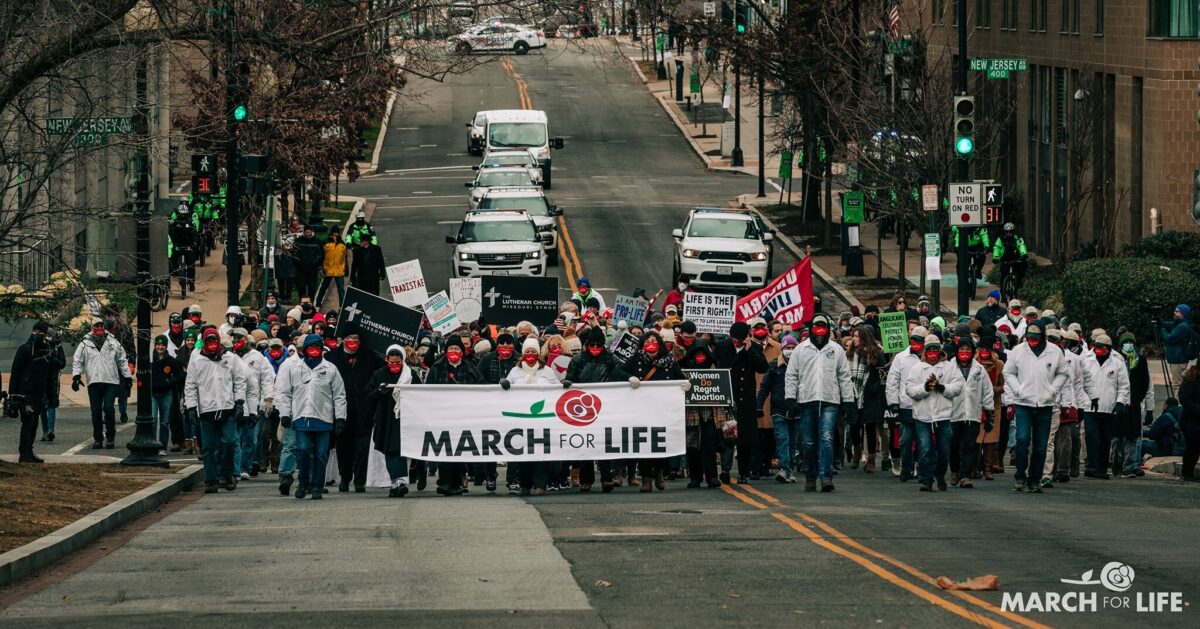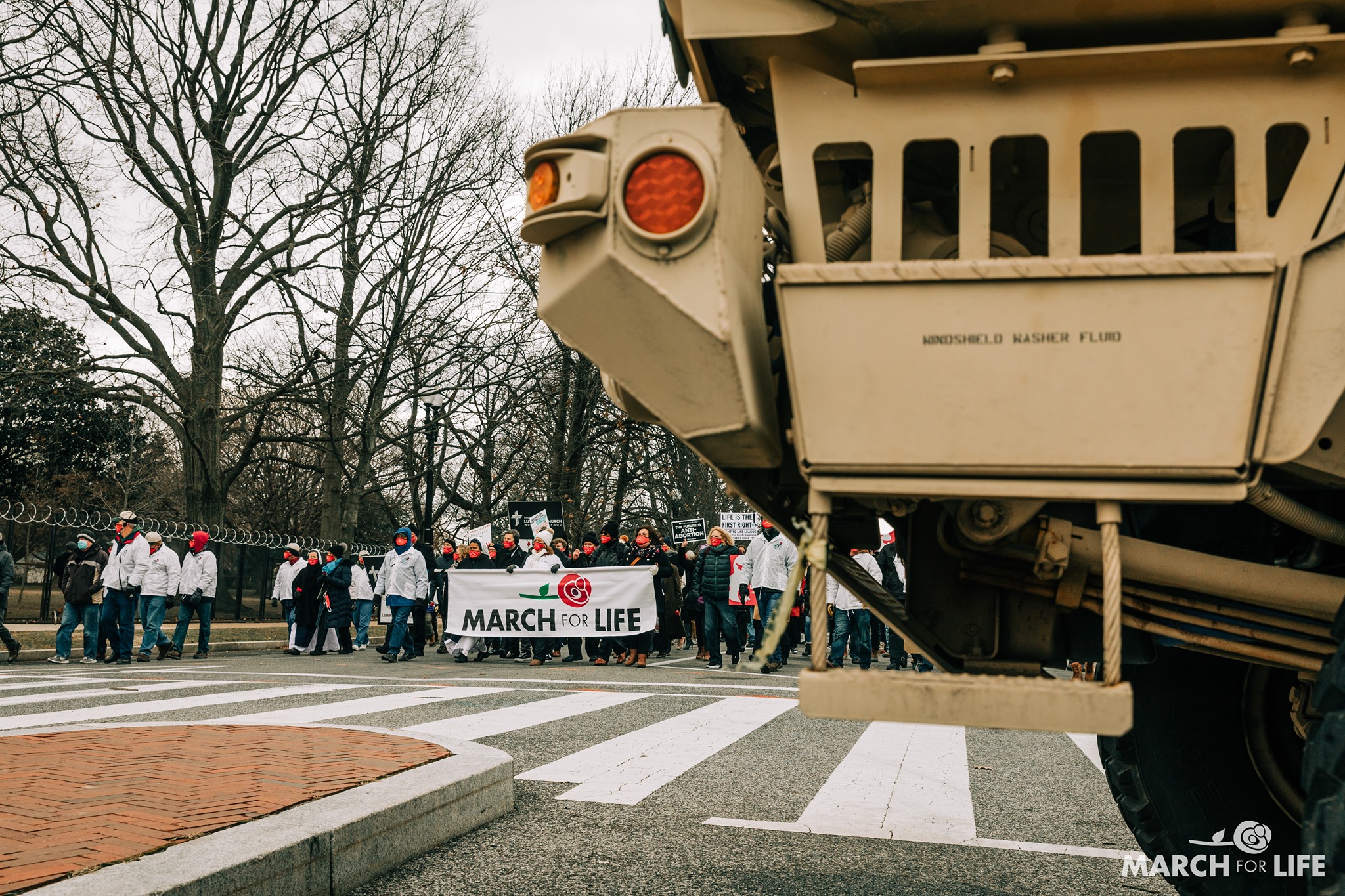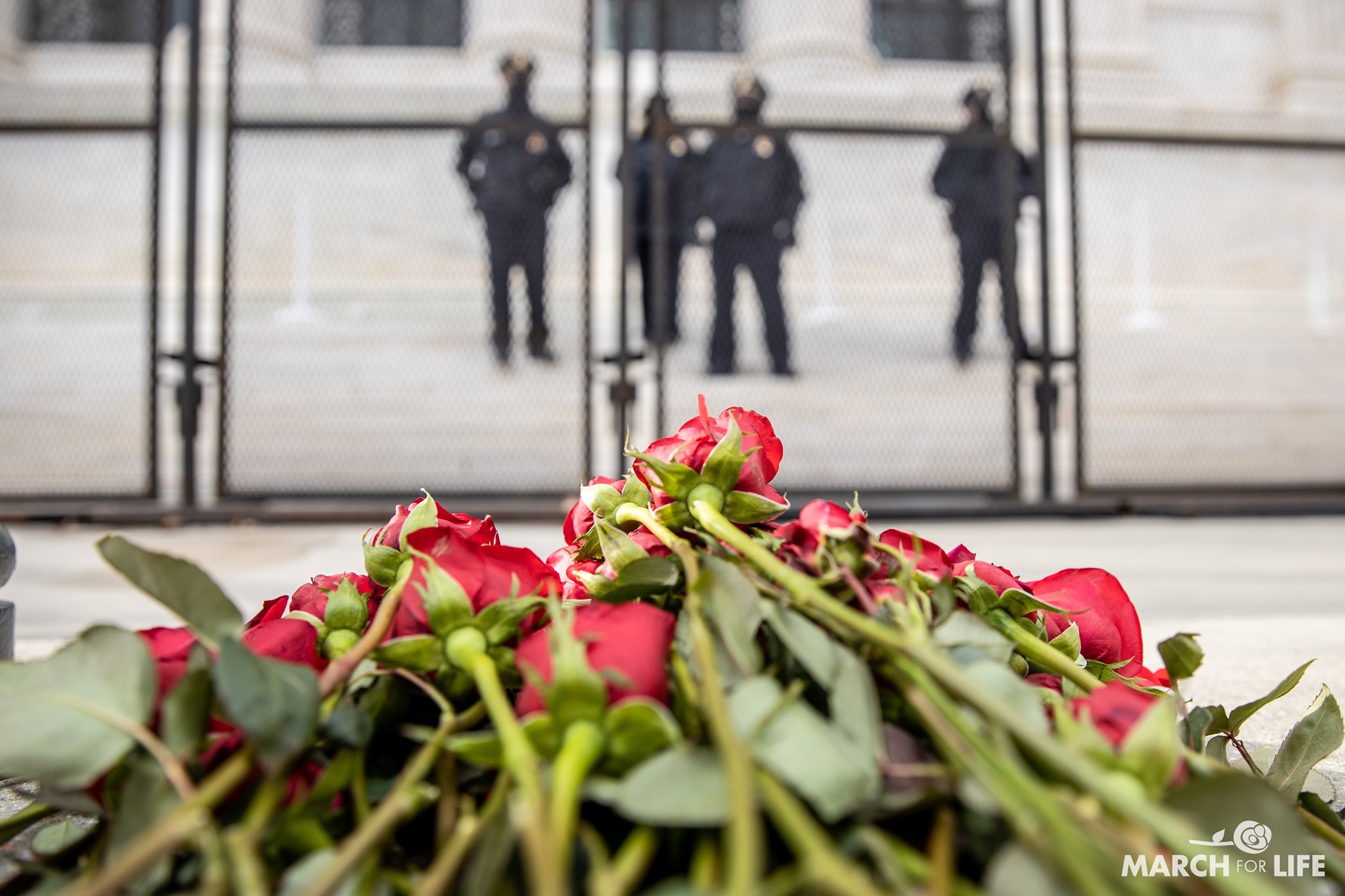
Just over a year ago, tens of thousands of pro-life advocates gathered near Constitution Avenue in Washington, D.C., for the National March for Life. It was impossible to see where the crowd ended or where it began. The president of the United States spoke from a stage on the National Mall, and participants chanted, sang, beat drums, blasted music through speakers, and chatted as they made their way toward the U.S. Supreme Court.
This year, the same event could not have looked more different as fewer than 100 pro-life leaders walked solemnly behind the March for Life banner on Jan. 29 in the nation’s capital. Occasional quiet prayer or singing could be heard from the group, but the most pervasive “sound” was a sober silence.
Several Lutheran Church—Missouri Synod (LCMS) leaders were asked to participate in the invitation-only event: the Rev. Dr. Matthew C. Harrison, LCMS president; the Rev. Christopher Esget, LCMS fifth vice-president and pastor of Immanuel Lutheran Church, Alexandria, Va.; and Carol Tobias, president of the National Right to Life Committee and an LCMS member.
This year’s National March for Life was quickly reworked when, less than two weeks before it was scheduled to take place, the March for Life team converted it to a virtual event, inviting a small group of pro-life leaders from across the country to represent the pro-life movement as a whole. The march was livestreamed through the March for Life’s website, allowing supporters to tune in from home.
“Thousands of people in LCMS Life Ministry speak up for life in their communities each and every day through their various vocations,” said Deaconess Tiffany Manor, director of LCMS Life Ministry. “As a church we speak up for life on the national level, which is why we participate each year in the national March for Life held in Washington, D.C. Even this year, with a much smaller march, it was important for Lutherans to be there, all of us represented by our [Synod] president, to stand together with other pro-life organizations witnessing to our nation that we are committed to the sanctity of human life.”
Life unites
The size of the group was not the only difference at this year’s march.
Rather than their typical route of around one mile, the marchers took an altered, nearly two-mile route. This was necessitated by the many barricades and blocked streets that have been in place in the nation’s capital for several weeks, following the forced entry of the Capitol Building by protestors in early January.
“It feels like the capital is occupied,” said Esget. “There are these tall fences with razor wire all around the federal buildings. And there are National Guard troops stationed right inside those fences, spaced out every 6 to 10 feet, carrying military-grade rifles.”

The group also faced a much different political reality than that of the previous year, when the nation’s president had attended the event.
“Jeanne Mancini [president of the March for Life] spoke to us all as we were preparing to commence [marching],” said Harrison, “and she urged us all to have a more somber tone in light of the issues facing the nation, including the decidedly pro-abortion determination of the new administration.”
The 2021 theme for the National March for Life was “Together Strong: Life Unites.” And, in spite of the nation’s political tensions being palpable in the capital, the uniting cause of life stood out more clearly than ever for those who marched. They represented various religious and political groups but stood united in their stance against abortion and in defense of life at all ages.
“There was no kind of partisan feel,” said Esget. “That was another huge difference from previous years. … It was just really a strict pro-life message. … I’m not against the celebratory character the march has taken on in years past, but this felt much more serious.”
Each participant carried a rose (long the symbol of the March for Life), a call back to the early years of the march when participants would hand-deliver roses to legislators in their offices as a symbol of their plea that they would stand up for the lives of the unborn.
“We need to be careful that the pro-life cause is not seen simply as part of a partisan agenda. … We need to see this as something that transcends politics. And maybe some time in the political wilderness will be beneficial to the pro-life movement, so that we can focus on what’s actually important — the lives of these children; the lives, well-being and health of the mothers; and, for our whole nation, that we’ll focus on the first things, instead of simply rejoicing in having political power,” said Esget.

Praying and working
Typically, before the March for Life, LCMS Lutherans from across the country have gathered at Immanuel Lutheran Church in Alexandria, Va., to celebrate a Divine Service together the morning of the march.
This year, Esget considered cancelling the service. However, Immanuel’s members changed his mind.
“It was the members of my church who really encouraged me to keep it,” said Esget. “They said, ‘Even more important than marching is that we listen to the Word of God and we pray.’”
After the service, Immanuel’s members stayed to do a service project for a local crisis pregnancy center that the congregation supports.
“They said, ‘We’re still going to use this day to mark the cause for life. We’re going to hear the Word of God and we’re going to do something tangible for our neighbors,’” said Esget.
Harrison emphasized that Lutherans stand in defense of the unborn and also in support of life at all ages.
“The LCMS is pro-life. That’s because Christ is pro-life. The Bible is abundantly clear on this,” Harrison said. “It’s an attitude we live in our homes and families. It’s a stance we take for adoption, for seeing the developmentally disabled as valuable people redeemed by Christ’s blood.
“Through LCMS World Relief and Human Care, we confess the sacred nature of human life from conception to natural death and provide millions upon millions of dollars for care for people of every race, in every stage of life. Congregations do even more. And individuals even more in their homes and families.”
The U.S. Supreme Court issued its Roe v. Wade decision legalizing abortion in all 50 states in January 1973. Since then, almost 62 million abortions have been performed in the U.S. LCMS Life Ministry works to uphold the sanctity of human life at all stages through numerous domestic and international programs, advocacy and teaching.
For more information, or to learn how to plan life events in your community, contact LCMS Life Ministry at lifeministry@lcms.org or visit lcms.org/life.
Posted Feb. 9, 2021




